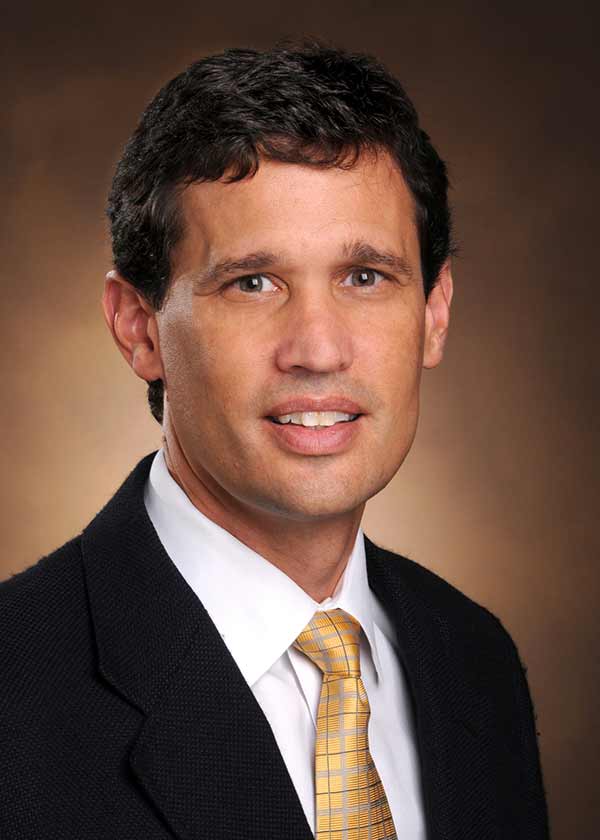
Michael K. Cooper, MD
Dr. Cooper is the Chief of Neurology at the Veteran’s Affairs Medical Center. He is an Associate Professor of Neurology in the Neuro-Oncology Division. Dr. Cooper earned his medical degree from the University of Alabama School of Medicine. During medical training, he received a Howard Hughes Medical Student Research Training Fellowship to study molecular genetics in the laboratory of Dr. Jeffrey C. Hall at Brandeis University. Dr. Cooper completed residency and fellowship training at the Johns Hopkins Hospital. Dr. Cooper received a Howard Hughes Postdoctoral Research Fellowship for Physicians to study Hedgehog signaling in the laboratory of Dr. Philip A. Beachy in the Department of Molecular Biology and Genetics at the Johns Hopkins School of Medicine.
Research Information
The Cooper laboratory studies brain tumor cellular heterogeneity with respect to molecular pathways that drive glioma cell growth and adaptive responses to therapeutic modalities. Towards these goals, the laboratory utilizes a patient tissue repository to identify the specific glioma subtypes in which the Hedgehog signaling pathway is operational and activated. Dr. Cooper’s research team has established a preclinical model for growing human malignant gliomas in mice to demonstrate that Hedgehog signaling regulates glioma growth and that pathway inhibition enhances survival. The Hh pathway appears to be activated in a subset of glioma cells (CD133+ cells), and determining how Hh signaling impacts this cellular compartment in gliomas is a primary focus of research. Longer term goals of these preclinical studies are to design clinical trials of Hedgehog inhibitors based upon selecting patients with malignant glioma who might best respond to Hedgehog inhibitors, defining the mechanism of action of Hedgehog pathway inhibition on glioma cancer stem cells and avoiding potential mechanisms of drug resistance.
There is a tremendous need to model glioma cellular compartments and their dynamic responses to therapeutic interventions. To address this need, Dr. Cooper’s laboratory is involved in several collaborative efforts. One of these is to generate monoclonal antibodies against heterogeneous malignant glioma cell types. A central goal of these studies is to determine if these antibodies can be used to define subclasses of glioma tumor initiating cells and their lineages.